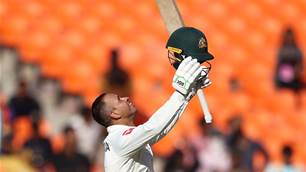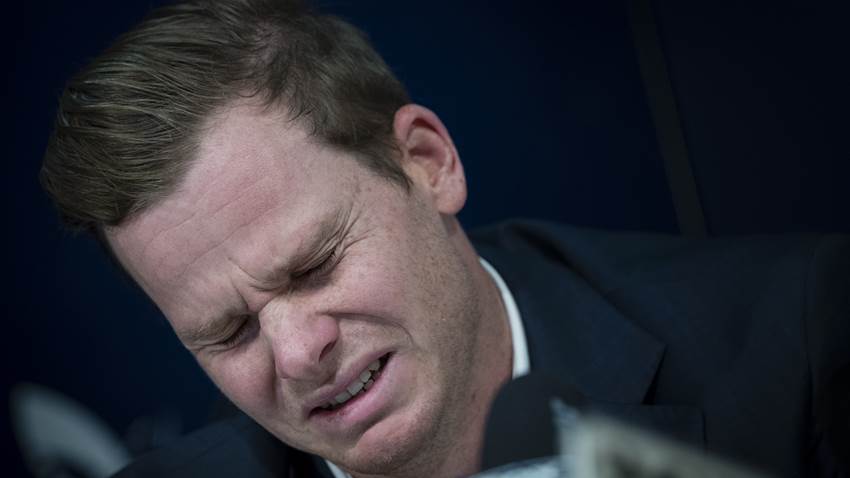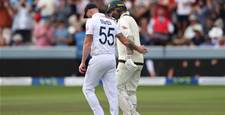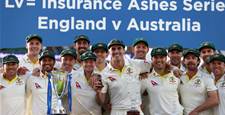Readers will be aware that on 15 April 1912, the RMS Titanic struck an iceberg and sank killing over 1500 people, including the captain, whose name was Smith. The recent ball tampering incident was the iceberg that holed HMAS Cricket, and once again Captain Smith is standing at the rail as the water surges around him.
Australia is complicated.
We love larrikins, but we hate cheats.
The land that produced Don Bradman also produced Shane Warne, Ned Kelly and Fine Cotton, and (most) Australians have no problem including all of these within the pantheon of Aussie heroes and anti-heroes.
Mind you, there’s been a subtle storm brewing around the Aussie cricket team for some time. The public don’t really know the details but the perceived arrogance ratio has been rising. Loveable bad boys like Ian Chappell, Doug Walters, Kerry O’Keefe, Mark Waugh and Warnie were never perceived as arrogant. They were approachable, spoke our language and were ‘one of the boys’. Others like Rod Marsh and David Boon broke Qantas drinking records and so became legends.
There are rules against such antics these days, but with the demise of larrikinism has come the rise of elitism and separateness. The fans now perceive themselves as being more outside the inner circle than ever before and while they tolerate it, they also watch their heroes closely for signs of arrogance – indications they are no longer ‘one of the boys’.
At the same time we have seen an increased superficial embrace of tradition, such as baggy green ceremonies for new players, while the genuine underlying traditional values are apparently being eroded.
The rot started when we heard stories like Andrew Symonds excluding anyone who hadn’t been a test player from the drinking group in a public hotel. That was bad enough but the fact that the other players let him do it was disturbing.
Then there was the story regarding Mike Hussey’s retirement party at the SCG in 2013. I’ve no idea whether it was true, so I won’t say exactly what it was (I’ll bet most readers would be aware of the story) but what it certainly showed was a cultural schism within the team with tradition on one side and a taste for partying with billionaires on the other.
So, what does this say about the internal team politics today and the extent to which that played a part in what happened last week? In all honesty, I don’t know but I do feel fairly sure that the perceived departure from tradition is playing a role in how Australians now feel about their team.
Of course, a very strong part of our tradition is playing fair, and I think what’s really upset us. We see cheating in other cultures and sneer at it, safe in our absolute certainty that we would never do that. Ball tampering might be alright for the likes of Faf du Plessis or Mike Atherton or any number of Indians and Sri Lankans. But there’s no way Australians would lower themselves to such appalling tactics. Just as you’d never see an Australian taking a dive in the penalty box or rolling about shrieking to feign injury. That is not what we do.
The outrage and revulsion of the entire country seemed to take even the players by surprise. The sanctions imposed on players from other countries were far less than those imposed by Cricket Australia and, I suggest, reflect the manner in which ball tampering is perceived in different countries.
That, I believe, is why we felt so let down by the antics of Bancroft, Smith and Warner – captain and vice-captain. Our certainty as to our own cherished standard of fair play was shattered. This is a pain felt personally by every Australian and that’s why the demand for vengeance was so hot.
But do we still feel that way?
On sober reflection, after a week of digesting the awful reality, and after watching the devastating impact on Steve Smith in his press conference. Do we still want him to be so heavily punished?
Nobody outside the playing group and Cricket Australia knows exactly what happened but from the odd titbit that’s leaked out: Cricket Australia has indicated that David Warner was regarded as the main instigator of the plan and delegated Cameron Bancroft to carry it out. Steve Smith (it seems) knew they were hatching some sort of mischief but threw his hands up and said: “I don’t wanna know about it.” (or words to that effect)
That was his crime. Not wanting to know about it.
This is obviously a failure of leadership, but if Smith did not know the exact nature of the crime being plotted then it certainly reduces his culpability in my mind. It is therefore very much to his credit that he took full responsibility, as captain, for what happened. The consequences are hard but that is the price of leadership – you get most of the glory when the team succeeds and must cop most of the rotten tomatoes when it fails.
Having said that, I am hardly alone when I say that Steve Smith’s press conference was heart rending. The genuine, deep remorse was palpable and, if it is true that he didn’t have full knowledge of what was intended, then I for one am starting to think that the penalty is a bit of an over-reaction.
The first Captain Smith wasn’t responsible for that Atlantic iceberg, but it sank the Titanic on his watch. In those days, honour demanded he go down with the ship.
Is that how we still feel?
-----------------------------
Adrian’s latest book The Fighting Man is in the shops right now or available through Booktopia. Adrian also wrote Mr Cleansheets.
Related Articles
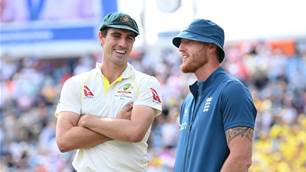
Captains Fantastic
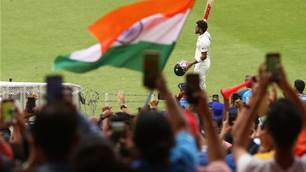
Kohli’s century breaks barren run
